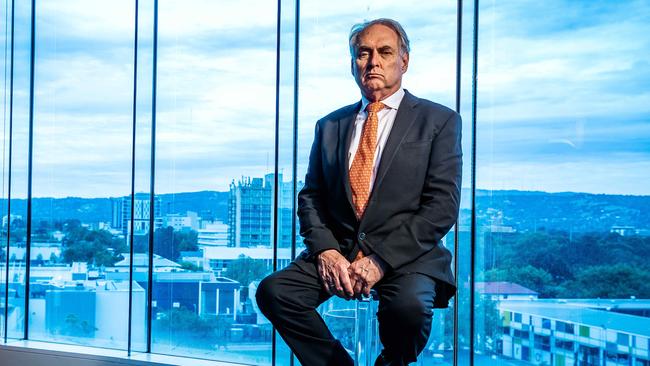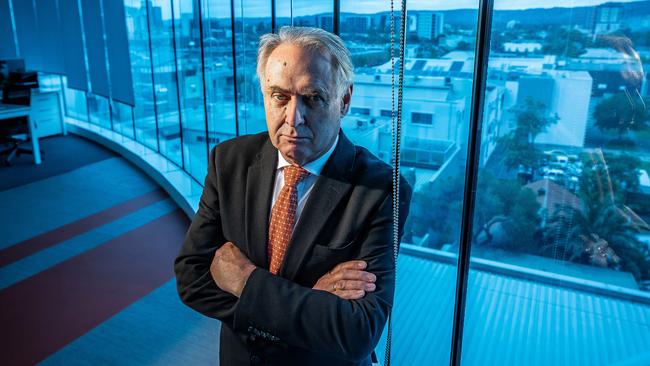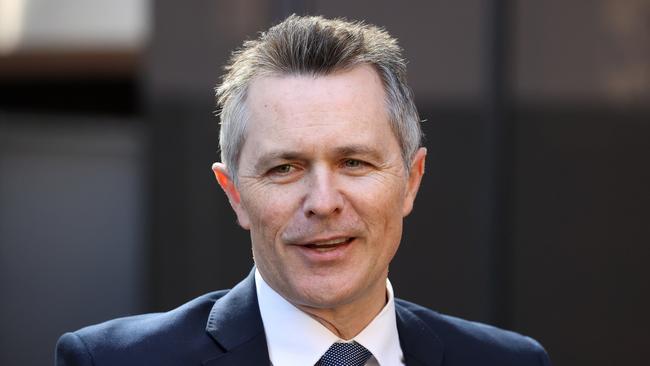
And it is this process that underpins the strength of a democracy, but often it is not recognised.
In the Albanese government the two success stories that have come into my ambit are Trade Minister Don Farrell and Education Minister Jason Clare.
Clare will be of special interest to the corporate sector because, unlike so many ALP politicians, he did not come onto politics via the union movement but rather had a law degree (the Liberal Party entry pattern) and was an executive of Transurban. Very few corporate executives enter the parliamentary system and maybe Clare’s success will inspire others to also contribute to our democracy.
In Europe, Farrell was under enormous pressure to sign the trade deal. His Prime Minister was doing a defence deal with the German President that involved manufacturing in Australian, he was mixing the NATO club and met the French President.
But Farrell stood his ground and to the credit of Albanese he backed his trade minister.
The farm lobby in Europe, and particularly France, is very strong and they do not want low-cost Australian beef, grains and dairy being sold in Europe. Moreover they wish to harm efficiency in the Australian dairy industry by making them change the name of key cheeses.
At the same time, the green movement in Europe is waging a campaign against conventional farming and if somehow we negotiated a quota, a way to block it would almost certainly be found.
Unless there is a change in Europe we are better not to have a trade deal but to enter individual arrangements like the German defence deal.
But in the latest negotiations it was clear that Europe wants access to our rare earths and other minerals required for electrification.

Somewhat arrogantly, the Europeans talked as though they were doing Australia a favour by becoming a rare earths market. At least at the moment the world, including places like Indonesia and the US, is seeking our electrification minerals. Europe is in the queue.
We need to take advantage of this situation and achieve as much processing of minerals in Australia as possible.
We might even consider offering Europe access to them if they fund the processing plants.
Of course, as I pointed out last month, Australia’s Vulcan Energy Resources is funding lithium extraction plants on the border of France and Germany.
This was an area where the Europeans needed Australia’s mining and capital raising abilities.
In the future it is conceivable that we might secure a small but very enforceable access to part of the European agriculture market in exchange for European access to our minerals. But that’s speculation.
Congratulations Don Farrell for standing up for the nation.

Turning to Jason Clare, he was not really obscure because he held various ministerial portfolios in the previous ALP governments. But when he was made education minister in 2022 no one really knew what to expect.
For almost a generation, education ministers from both parties have ignored the fact that the university system in most states was putting trainee teachers through a long course (usually four years) but not teaching them how to teach.
A lot of people came through the process and learned how to do the job and became excellent teachers. But a significant number did not.
Many left the industry in frustration and while others just struggled on.
As a result, a great many students in the primary sector — and particularly boys — came through with inadequate primary education fundamentals. And they never learned those skills in secondary school.
I am sure this has been a contributor to the current problems in secondary education, job fulfilment and, I suspect, in some cases family violence.
But fixing it seemed impossible because of the vested interests.
Clare has brought the states together and they are forcing the universities to do what they should have done and teach teachers how to convey the basic requirements of reading, writing and arithmetic (the so-called three Rs).
It won’t be easy to discover those teachers that stayed in the profession and became underperformers because they were never properly taught how to teach.
They will need help. Rectifying these fundamental mistakes in education will not be easy and Clare’s job is just starting.







When there is a change of government, relatively obscure Opposition politicians are often thrust into areas of great responsibility. Obviously some fail but others make an enormous contribution.